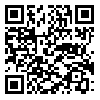Volume 18, Issue 4 (Winter 2024)
jmed 2024, 18(4): 692-693 |
Back to browse issues page
Download citation:
BibTeX | RIS | EndNote | Medlars | ProCite | Reference Manager | RefWorks
Send citation to:



BibTeX | RIS | EndNote | Medlars | ProCite | Reference Manager | RefWorks
Send citation to:
Heydari S. ChatGPT in Writing Scientific Articles: Friend or Foe?. jmed 2024; 18 (4) :692-693
URL: http://jmed.ssu.ac.ir/article-1-1466-en.html
URL: http://jmed.ssu.ac.ir/article-1-1466-en.html
Department of Health Information Management & Technology, School of Allied Health Professions, Kashan, Iran , safiyehsadat.heydari@gmail.com
Abstract: (1728 Views)
Artificial intelligence tools such as GBT Chat have sparked many discussions among academics; While some see them as a useful tool to speed up research and others see it as a threat to the integrity of authorship. Like it or not, large language models (LLM) are taking over the scientific literature in both good and bad ways. These irreplaceable free tools to use are and will be a reality, and it's up to us how we accept them and work with them. The biggest concern today in using artificial intelligence tools like ChatGPT is the lack of accuracy and the presentation of false information in such a way that the text may seem acceptable at first, but upon closer examination, it can be found that it contains false information; In addition, when the article is sent to a journal, the editors and reviewers will not have time to check the correctness of the article phrase by phrase and reference by reference. If scientific articles written with artificial intelligence tools are not properly reviewed, there is a high risk of providing false information; Especially among writers who do not specialize in this topic. Misuse of AI is a problem that can be solved by adjusting training methods. It is very important to develop curricula and educate university students about the ethical concepts of artificial intelligence, as well as train experts in the field of ethical issues of artificial intelligence to solve this problem. With the advancement of artificial intelligence, educational methods should be adjusted to combat abuse, and ethical considerations and responsibility in the use of this tool should be prioritized. We need to educate researchers about the pros and cons of this growing technology and focus on writing scientific papers that show the pros and cons of using them. Also, in order to combat the misuse of artificial intelligence, we need to involve all policymakers and users in a joint effort to create ethical frameworks and guidelines. In this context, we must create a multidisciplinary approach that involves experts in the fields of health information management, health policymaking, medical journalism, medical education, and ethicists in the development of curricula. Only through a joint effort can we ensure the responsible use of AI technology. By educating university students on ethical considerations and responsibility in the use of artificial intelligence tools such as ChatGPT, developing relevant curricula and providing guidelines on the correct use approach, we hope to provide an environment so that such tools do not become a tool of false information and with Human expertise and judgment should be used.
Type of Study: letter to editor |
Subject:
Medical Education
Received: 2024/01/22 | Accepted: 2024/02/27 | Published: 2024/03/16
Received: 2024/01/22 | Accepted: 2024/02/27 | Published: 2024/03/16
Send email to the article author
| Rights and permissions | |
 |
This work is licensed under a Creative Commons Attribution-NonCommercial 4.0 International License. |







